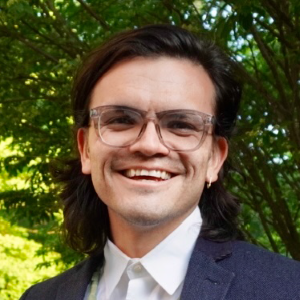This calendar features events relevant to global health from throughout the Rutgers community. To inquire about listing your event, contact us at communications@globalhealth.rutgers.edu.

- This event has passed.
Barrio Science and Gender Transformative Health: Bridging the Evidence Base and Community Knowledge Toward Effective and Sustainable Interventions with Minoritized Men
April 4, 2022 @ 12:00 pm - 1:00 pm
NOTICE: This seminar has been rescheduled from its original date. The information below includes the new date and time.
Rutgers Global Health Institute is hosting a guest faculty seminar at 12 p.m. on Monday, April 4, 2022, as part of its Viewpoints in Global Health Research: Guest Faculty Seminar Series.
This online seminar will be presented by:
Luis Arturo Valdez
School of Public Health and Health Sciences, University of Massachusetts Amherst
Barrio Science and Gender Transformative Health: Bridging the Evidence Base and Community Knowledge Toward Effective and Sustainable Interventions with Minoritized Men
According to reports from the U.S. Centers for Disease Control and Prevention, life expectancy for Latino men in the U.S. is 5.2 years lower than that of Latina women. Some of these differences have been partially attributed to biological factors that give women advantages that result in a longer life. Nevertheless, behavioral and environmental factors also play a large role. Men are more likely to smoke, abuse alcohol, have poor dietary behaviors and physical activity patterns, engage in high-risk behaviors, and hesitate to see a doctor when they are ill. Latino men die at higher rates than Latina women from heart disease, unintentional injuries, chronic liver disease, as well as suicide and homicide. It has become increasingly evident that this life gap is due largely to preventable causes. Even clearer is the notion that some of these preventable causes of death are due to archaic masculine ideals.
While health-detrimental expressions of masculinity (hegemonic masculinity) cut across sociodemographic lines, in Valdez’s work as a researcher of health behaviors with Latinxs, he has consistently found that Latino men that adhere to more hegemonic ideals of masculinity (toughness, self-reliance, emotional disconnectedness, etc.) also are reluctant to practice healthful behaviors and seek care when needed. While some of this hesitancy can be attributed to issues of knowledge, as well as access and availability of adequate services, Valdez’s work has consistently shown that the more Latino men identify with traditional notions of masculinity, the more vulnerable they become.
So, what can be done about this? Changing boys’ and men’s ideas about how to express masculinity and take better care of themselves can be a start. Gender-transformative programs and interventions create opportunities for men to actively challenge health detrimental gender norms and promote positions of social and political influence for and address power inequities between persons of different genders. While this approach has historically been used to address underlying rigid and sexual power imbalances related to sexual and reproductive rights, there is promising evidence suggesting the applications of this approach toward the improvement of men’s adverse health behaviors. Nevertheless, while attempts have been made to address the gender-based underpinnings of some adverse health behaviors in men, to date, there are no interventions specifically focused on reducing health risk behaviors by addressing the disentangling of self-conceptualizations and expression of masculinity in Latino men. This talk will briefly describe how we foster community/academic partnerships to leverage the intersection of grounded community knowledge and the evidence base into mutually beneficial, effective, sustainable, and scalable interventions with Latino men.
About the Presenter
Luis Arturo Valdez is an assistant professor in community health education and serves as core faculty in the Center for Community Health Equity Research at the School of Public Health and Health Sciences at the University of Massachusetts Amherst. He also is a cofounder and associate director of Nosotros Comprometidos a Su Salud (Committed to Your Health), which is a program within the Mel and Enid Zuckerman College of Public Health at the University of Arizona that was developed to foster community-engaged research collaborations, service, and education to advance health equity.
A first-generation Mexican immigrant trained in health behavior and social epidemiology, Valdez specializes in using community-engaged, multilevel perspectives and mixed-methods approaches to understand and address the impact of systemic processes that perpetuate racial/ethnic disparities in historically marginalized populations.
Currently, Valdez is interested in understanding how individual-level experiences interact with macro-level characteristics to influence the health-related behaviors of Latino men. Specifically, his research examines a range of health behaviors related to alcohol and substance misuse, chronic stress, healthy food choice, and physical activity, with an emphasis on developing and testing culturally and gender-responsive interventions. He also works to identify and assess the ways in which patriarchal systems impact the health and well-being of minoritized communities as well as how these systems affect the ways in which research is conducted.
Online via Zoom
Free and open to the public. For more information, email info@globalhealth.rutgers.edu. For more events, visit the seminar series page on the Rutgers Global Health Institute website or explore the institute’s full online calendar.
View all events in this series